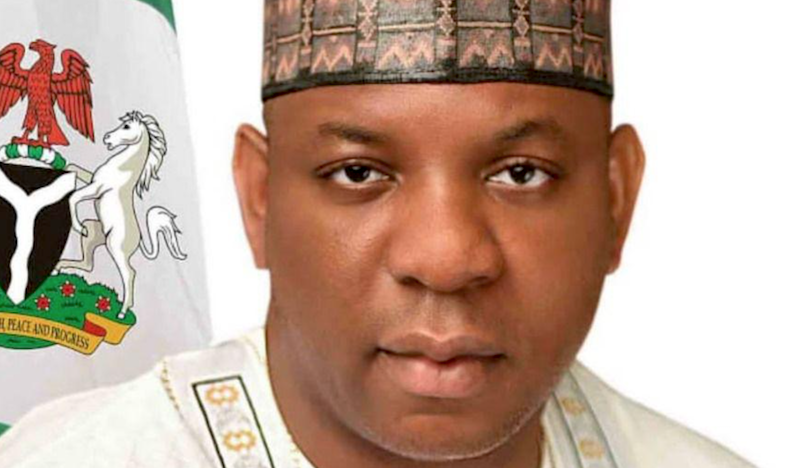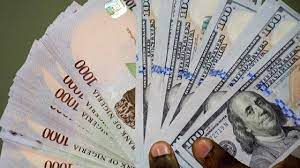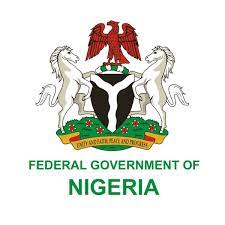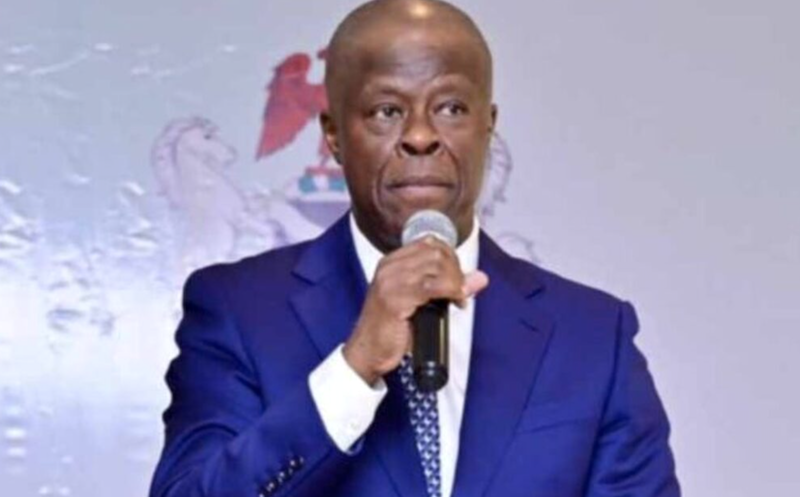In a society where a few live in luxury while many struggle in poverty, it’s not surprising that feelings of envy, jealousy, and even resentment arise among the less fortunate towards those who are well-off.
This is particularly true when it comes to banks, which serve as intermediaries, receiving deposits from those with surplus funds and lending them to those in need—for a fee. However, it seems that these deposit money banks are growing wealthier while their customers are becoming poorer, making them easy targets for criticism.
A notable critic is Mr. Femi Otedola, chairman of Geregu Electricity Power Company, who recently expressed concern that around five banks, likely from the top-tier category, have allegedly spent over $500 million on private jets for their executives. The banks, on the other hand, argue that these jets are necessary for their executives to save time, avoiding the delays and inconveniences of commercial flights. They also point out that these jets are often part of leasing pools, generating income for the banks when not in use by their executives.
An analysis of this situation suggests that the issue of banks making substantial profits while others in society struggle financially is multifaceted. Banks are profit-oriented institutions, primarily focused on delivering returns to their shareholders. During economic downturns, they often become more cautious, reducing lending and taking on less risk, which can worsen economic hardships. This behavior can widen the wealth gap, as bank profits do not typically benefit the broader population, contributing to income inequality.
To address the challenges posed by the banks’ significant profits, stricter regulations and policies may be necessary. This could be why an excessive profit or windfall tax has been introduced through the amendment of the Finance Act 2023, which imposes a levy on banks’ Foreign Exchange (FX) gains. The tax rate on these gains has been increased from 50 to 70 percent.
This move comes in response to the significant FX income banks generated following the naira’s devaluation after the current administration took office.
The new policy has faced initial criticism, particularly from banks that have described it as double taxation. KPMG Nigeria, a tax and audit advisory firm, criticized the 50% windfall tax on banks’ foreign exchange revaluation gains recorded in 2023, warning it could lead to legal challenges, as Nigeria’s tax policy does not support retroactive taxation.
Similarly, PwC Nigeria raised concerns that the unpredictability of the windfall tax on already reported 2023 profits might deter investment. Prominent lawyer Dr. Olisa Agbakoba also criticized the proposed amendment to the Finance Act, arguing it was poorly conceived and outside the National Assembly’s authority. He added that the policy’s burden would likely fall on the banks’ customers.
While banks and audit firms are opposing the tax, Femi Otedola, the largest shareholder in First Bank of Nigeria (FBN), has voiced his support, arguing that revenue from windfall taxes could be directed towards essential public services like healthcare, education, and infrastructure, benefiting all citizens and reducing social inequality.
Tony Elumelu, Chairman of United Bank for Africa (UBA), and Ladi Balogun, CEO of First City Monument Bank (FCMB), also expressed support after meeting with President Bola Tinubu and his economic team, saying that extraordinary income should help alleviate poverty, aligning with the government’s intentions.
The Association of National Accountants of Nigeria (ANAN) and the Chartered Institute of Taxation of Nigeria (CITN) have also endorsed the FX Windfall tax on banks. CITN Chairman Chief Samuel Agbeluyi noted that windfall taxes, or “prosperity taxes,” are not new and have been applied in situations where certain sectors, like telecommunications during COVID-19, performed exceptionally well.
Despite being swiftly enacted into law, critics argue that effective implementation will be challenging due to the issues they have identified.
In hindsight, proactive Corporate Social Responsibility (CSR) efforts by the banks might have mitigated this situation. Banks have previously engaged in commendable public good projects, such as the renovation of the National Arts Theatre and contributions to the CACOVID initiative during the pandemic, which provided medical care and palliatives to Nigerians.
Based on experience from other jurisdictions/climes, I anticipated the FX gains tax, during the public presentation of my book “Leading From The Streets: Media Interventions By A Public Intellectual 1999-2019” three months ago. In that welcome address, I highlighted the large profits banks were declaring while other sectors and most Nigerians were struggling. In light of the above, l suggested that banks could positively impact society by reconsidering some charges, such as waiving fees for alerts and statement printing, as a small but significant sacrifice for the greater good.
“We should recognize the commendable efforts of Corporate Nigeria during the COVID-19 pandemic. Under the leadership of the Central Bank of Nigeria (CBN), banks and major corporations, through the Special Purpose Vehicle (SPV) CACOVID, provided much-needed support to Nigerians, earning widespread praise and reinforcing public confidence in the corporate sector’s resilience.”
As if l was being prophetic, I expressed the view above on May 8, about three months before the proposal to amend the Finance Act 2023 on July 17, which was passed by the Senate on July 23. If bank owners and managers had followed my advice to lessen the burden on their customers, it’s possible the FX gains tax, which is now causing them significant concern, might not have been imposed.
Doing good to members of a society/community can earn an organization or sector the goodwill of the people in the society where they operate. I believe that is the spirit behind Tony Elumelu’s Africapitalism philosophy which is being driven through his Tony Elumelu Foundation, TEF outreach to Africans with one hundred million dollars ($100m) funding for mentoring and seeding young entrepreneurs. One wonders why a similar concept to help the critical mass of Nigerians in one way or the other was not copied by the financial services sector or the Bankers Committee in Nigeria. That is what self-regulation is about.
Take for instance the Dangote Group which has made concerted efforts to support the most vulnerable in our society by offering them sucor through distribution of food (rice)to the indigent nationwide.
Contrast the image of the Dangote Group five (5) years ago, and one can see the difference from when it was highly vilified for its trucks being a menace to the road users to the present situation where those public officers in NNPC Ltd condemning products from Dangote Refinery can be lynched by a Dangote loving mob for what they consider unpatriotic and intransigent behavior.
Such is the power of image burnishment which can change negative to positive perception and it can be applied be individuals, corporates and governments as well with superlative outcomes such as the Tony Elumelu and Aliko Dangote outcome.
I am aware that the anticipated revenue from the FX tax is intended to partially fund the 2024 national budget deficit of N9.18 trillion, with N6.2 trillion expected to come from the windfall bank tax to help reduce the deficit. This supplementary budget, intended for infrastructure, education, and other critical areas, was passed by the National Assembly alongside the amendment of the Finance Act 2023, which imposed a 70% tax on FX gains—now part of the Finance Act 2024—along with penalties for non-compliance, including three years of imprisonment and a 10% fine.
However, many economists believe that taxing capital gains is inefficient. The dilemma is that without taxing capital gains, people might shift taxable income into this category. This creates a complex situation: if our banks are overly taxed, they might lose their competitive edge internationally, especially as they expand across Africa and generate foreign exchange for the country. This makes the tax a tricky issue.
In “Das Kapital,” Karl Marx explores the consequences of the rich and the poor coexisting in society without balance. He argues that society is divided into two main classes: the bourgeoisie (the rich) and the proletariat (the poor). Marx believed the bourgeoisie exploited the proletariat by paying them less than the value of their labor, generating profits for themselves. In modern Nigeria, given the large profits banks are reporting, they could be seen as the bourgeoisie, extracting value from the Nigerian banking public, who resemble the proletariat. This concentration of wealth among banks supports Marx’s view that capitalism leads to wealth concentration in the hands of a few, while the majority remain poor and powerless, potentially leading to unrest.
We saw a glimpse of such unrest during the naira redesign exercise introduced by the CBN in 2022/23, which caused a severe naira shortage. Bank managers hoarded the currency in their vaults, selling it at a premium incurring the wrath of the masses who set some bank buildings on fire. Public anger was also directed at P.O.S. operators who charged high fees for naira withdrawals as they were physically attacked.
I aimed to apply Marx’s concepts of exploitation, surplus value, and class struggle to Nigeria’s current situation, where the CBN has had to intervene to prevent public anger against banks, bankers, and related services like P.O.S. operators.
Overall, Marx’s ideas about the exploitation of the proletariat by the bourgeoisie are relevant to Nigeria’s banking system, where banks appear to be profiting significantly while much of the population remains economically marginalized. The naira redenomination exercise and the resulting public anger towards bankers and P.O.S. operators highlight the tensions between these classes. The CBN might be trying to diffuse this tension through the profit tax on banks, which is now causing discomfort for financial institutions, especially deposit money banks.
The banks’ difficulties are compounded by the timing of this policy, which coincides with a new CBN recapitalization requirement. Banks must now increase their capital base to N500 billion for an international license and N200 billion for a national license, prompting them to scramble to raise funds from the Nigerian public, who are currently facing high inflation nearing 40%.
Adding to the challenges, the CBN has issued a directive that all funds in dormant accounts must be transferred to the CBN for safekeeping. Faced with multiple policies that could harm the financial services sector, bankers suspect malice from ex-bankers now leading the Ministry of Finance and the CBN, specifically Wale Edun, Minister of Finance, and Yemi Cardoso, CBN Governor. These policies are seen as stripping banks of idle funds in dormant accounts and windfall money that could have supported their recapitalization efforts.
This suspicion is intriguing, especially since the CBN allowed banks to report their FX windfall in their 2023 annual accounts before implementing the FX gains tax policy. It feels like a trap, particularly because banks had no warning, despite two of the four deputy governors, Philip Ikeazor and Emem Usoro, coming from the banking sector. It seems the era of a secretive CBN governor, where financial institutions must closely watch for signals, has returned.
This secretiveness, common in the U.S., where understanding the Federal Reserve Bank governor’s next move is an art, appears to have taken hold in Nigeria. A host of financial analysts is now trying to decipher the CBN’s actions.
Given these circumstances, the windfall FX gains tax can be seen as a strategic, albeit controversial, move that could have a significant impact if fully implemented.
Notably, windfall profit taxes on certain sectors due to extraordinary profits from favorable policy changes are not unprecedented. For instance, in 1981, British Prime Minister Margaret Thatcher’s finance minister, Geoffrey Howe, imposed a windfall tax on banks that made excess profits, raising about £400 million through a 2.5% surcharge on non-interest-bearing current account deposits. Similarly, in 2020, Chancellor Rishi Sunak imposed a bank profits surcharge to raise £2.1 billion for the UK government.
Despite resistance from banks, Thatcher defended the policy, arguing that the banks’ large profits were due to government policy, not improved efficiency or service.
In Nigeria, a similar tax on banks is expected to generate about N6.2 trillion, contributing to the increase of the 2024 appropriation to N35.055 trillion after the National Assembly’s amendment of the act. European countries like Spain and Italy have also imposed windfall taxes on oil companies following a 40% increase in prices due to the ongoing Russia-Ukraine war.
In the United States, the Windfall Profit Tax (WPT) was enacted in 1980 as part of a compromise between the Carter Administration and Congress over the decontrol of crude oil prices, following price controls implemented by President Nixon from 1971 to 1980.
The bottom line is that the banking sector may become sturdier and more robust if the capital base for international licenses is increased to N500 billion and N200 billion for national licenses as directed by the CBN. That would enhance the capacity of the Nigerian economy to grow to become a one-billion-dollar one as envisaged by the incumbent administration.
The last time bank consolidation occurred in Nigeria was in 2005, and the number reduced from 87 to 25 after undergoing consolidation via mergers and acquisitions.
Will the number of banks shrink further after the ongoing consolidation exercise?
Already, the CBN has approved the gobbling up of an old generation financial institution, Unity Bank Plc by a start-up Providus Bank even as Hallmark Bank was wound down by the apex financial institution.
The Providus/Unity merge minicks the manner in Titan Bank, a very young bank acquired Union Bank, which is one of the oldest regional financial institutions whose origin predates independence and which is in the same age range as Wema Bank, First Bank, and UBA.
Incidentally, UBA had also been acquired by a relatively new Standard Trust Bank in the manner that Titan and now Providus deemed to be babies in banking, acquired grandees such as Union Bank and Unity Bank.
Although, the Titan/Union Bank acquisition/merger is currently caught up in controversy, the Standard Trust Bank/UBA deal merger has worked out well for the shareholders who have received more value since the combination.
Is it not amazing that one bank that has remained unchanged in terms of ownership is First Bank? Despite remaining intact and not having been acquired or receiving new funding from new owners, so no dramatic change of management has been forced, it has been pulling its weight by growing organically. As such it has remained amongst the tier 1 banks in Nigeria.
The bottom line is that with banks being better capitalized would the high interest rates charges synonymous with Nigerian banks be reduced any time soon?
Is the CBN strategizing on how to achieve that objective of a regime of interest charges dropping from its present high of 30% to single digits?
That is perhaps the question that is uppermost in the mind of the banking public in Nigeria.
Magnus Onyibe, an entrepreneur, public policy analyst, author, democracy advocate, development strategist, an alumnus of Fletcher School of Law and Diplomacy, Tufts University, Massachusetts, USA, and a former commissioner in Delta state government, sent this piece from Lagos, Nigeria.
To continue with this conversation and more, please visit www.magnum.ng








